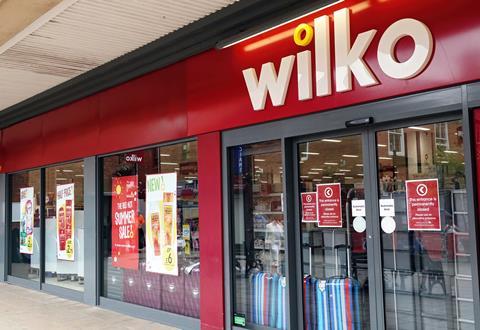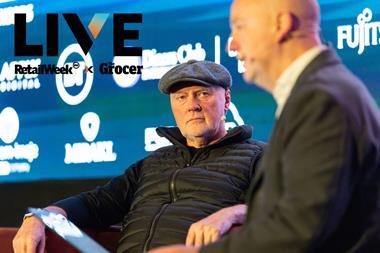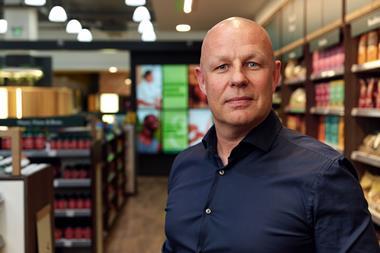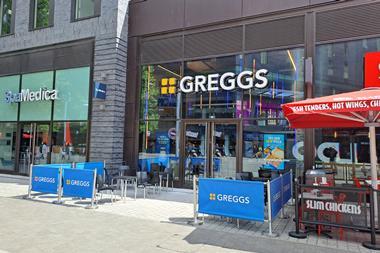
Former Wilko chair Lisa Wilkinson was accused of “burgling a failing business” in a bruising grilling by MPs over the collapse of the 93-year-old retailer.
Questioning Wilkinson over £7.5m paid in dividends to shareholders between 2019 and 2022, Business and Trade Committee chair Liam Byrne said it amounted to two-thirds of the profits over the period.
“What is especially stark is that as the business plunged into deeper trouble, the dividends went up,” he said. “How can that be justified?”
Told by Wilkinson the dividends had been recommended based on performance, reserves and cash in the company, Byrne said: “It looks to us, just on the numbers, like you’re burgling a failing business.”
Wilkinson said shareholders had received about £15m in dividends in nine years, equating to about £1.7m a year. “Each of those dividends would have followed the correct corporate governance,” she said. “They would have been recommended by the CFO as prudent, they would have gone through the board of directors.”
She said the dividends would only have been paid with the appropriate profits and cash in place to do so.
When pressed by Byrne, Wilkinson said: “I can’t answer the question in any other way. That is my understanding of how dividend is arrived at.”
Wilkinson was hauled before MPs on Tuesday alongside former CEO Mark Jackson and representatives of Ernst & Young, which signed off Wilko’s accounts since 2020, to give evidence over how Wilko collapsed and explain the hole in its pension fund.
Wilkinson, granddaughter of Wilko founder James Kemsey Wilkinson, was next questioned by MP Stephen Timms over the £50m pension shortfall and where the dividends had gone.
Ex-Wilko boss explains why Wilko failed
She said dividends from 2017 on had been paid into Amalgamated Holdings Wilkinson Ltd, and from there invested in startup businesses and the stock market.
She said there were no resources in AHWL which could be used to plug the Wilko pension hole because “they are tied up in other things and my understanding is, as a director of AHWL, I have legal obligations to act in the best interest of AHWL, having taken into account its stakeholders”.
She said the assets of AHWL would not be sufficient to plug the pension hole, and were visible on Companies House.
Questioning then moved onto dividends paid before 2017, with Wilkinson asking: “Do I have time, sir, to cover the dividends? Because I can’t do a pithy one-liner.”
Byrne replied: “That’s fine. We’re quite interested in how so much money came out, leaving a great big deficit, which now somehow can’t be filled because you’ve got fiduciary duties to the company that it was siphoned into.”
Wilkinson said a £63m dividend paid in 2014 secured the exit of shareholders leaving the business. Asked by Timms if those former shareholders had an obligation to plug the pension hole, Wilkinson said: “I cannot answer for them. I am not their spokesperson. But that was a considerable time ago.” She said Wilko had traded successfully in 2014, only running into trouble later.
Wilko fell into administration in August, leading to the loss of about 12,000 jobs and the closure of the chain’s 400 stores.
Explaining why the business failed, Wilkinson referred to declining high street trade, high rents and long leases on stores, the choice to stay open during pandemic lockdowns, and the 2022 mini budget, which coincided with the retailer taking out a loan.
What went wrong at Wilko uncovered in MPs’ questioning
“We were in the midst of that and at that point the interest terms on that loan were hiked massively and that became infeasible,” she said. “And so that was a contributor externally.”
She also listed credit insurers pulling cover and a failure by Wilko to scale the online business fast enough and maintain a clear customer proposition.
Wilkinson was asked twice if she wanted to apologise to former Wilko workers by Byrne, who pointed out her first response did not include the word sorry.
“You can have the word sorry,” she said. “Of course I’m sorry, if you wish me to say sorry. I thought devastated covered it.”
Asked why she had not previously offered an apology to former Wilko workers, Wilkinson said she was advised against communicating one internally by directors and administrators. A tearful Wilkinson then explained she subsequently agreed to be interviewed by The Times “in order to say thank you to my team members”.
Closing the session, Byrne said: “This has been a sorry story that we’ve heard today. We’ve had you, miss Wilkinson, admitting to a number of significant management mistakes, around stock, around range, around furlough.
“We’ve heard about a £60m warehouse modernisation that went wrong, a £40m loss on financial derivatives, a process of restructuring rents that didn’t go through.
“And despite those problems, we can’t, you can’t, explain why dividends went up. We have money sloshing around in trusts that somehow can’t be used to refund a pension scheme. And we’ve got accountants who are prepared to stand by the judgments that they made.
“We have at least had an apology.”



















No comments yet